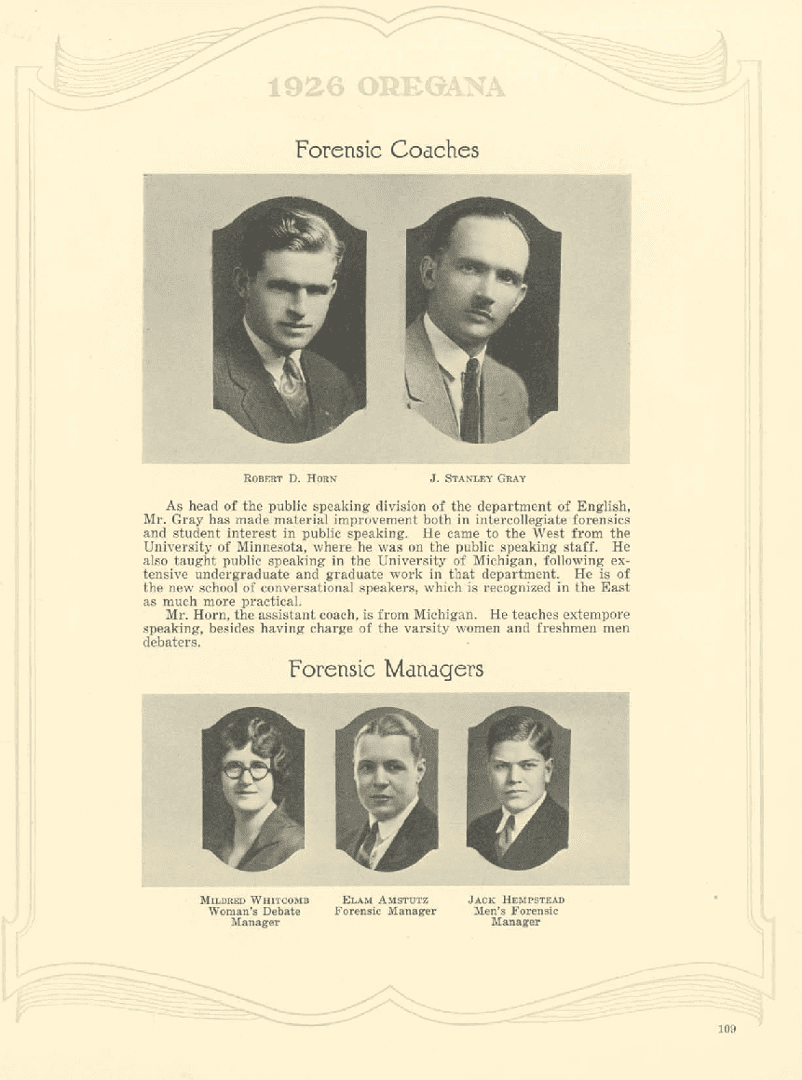Coaching and Management in Forensics
By Oregon Forensics Forever | January 1, 1926
 By the mid-1920s, Oregon Forensics had grown into a structured and professionalized program. For the first time, the Oregana yearbook highlighted the important role of forensic coaches and student managers, reflecting the maturity of the program and its significance on campus.
By the mid-1920s, Oregon Forensics had grown into a structured and professionalized program. For the first time, the Oregana yearbook highlighted the important role of forensic coaches and student managers, reflecting the maturity of the program and its significance on campus.
J. Stanley Gray, head of the public speaking division of the English department, brought experience from the University of Minnesota and the University of Michigan. Gray emphasized a new “school of conversational speakers” — a style recognized in the East for its practicality and natural delivery. Under his guidance, Oregon Forensics expanded in both competitive success and student interest.
Robert D. Horn, the assistant coach from Michigan, oversaw extemporaneous speaking and worked directly with the varsity women’s team and freshman men’s debaters, ensuring inclusivity across gender and class year.
Supporting them were the Forensic Managers:
- Mildred Whitcomb, Woman’s Debate Manager
- Elam Amstutz, Forensic Manager
- Jack Hempstead, Men’s Forensic Manager
Together, they coordinated logistics, organized competitions, and provided peer leadership. This dual structure of faculty coaching and student management positioned Oregon Forensics as not only an academic pursuit but also a collaborative enterprise that combined professionalism with student initiative.
Posted Under:

